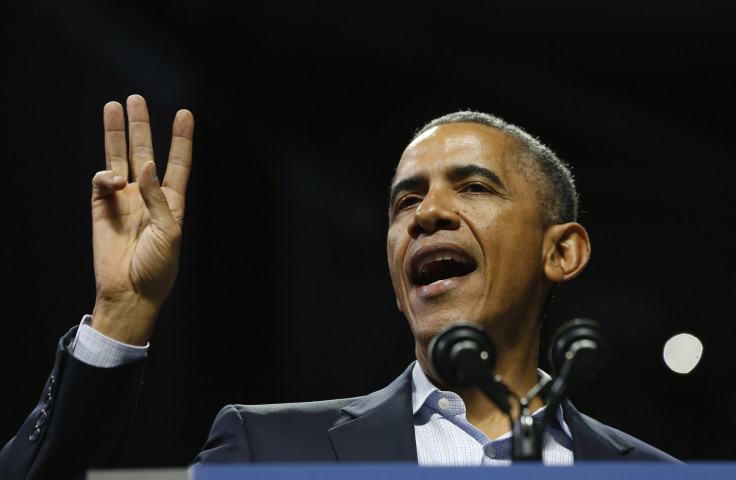Chinese Media Weighs In On Midterm Election 2014 Results: Obama Crippled By Results

As America watched the election results roll in overnight well into Wednesday morning, China, a nation with a complicated political and economic relationship with the U.S., was also watching. The newly Republican-controlled House and Senate could have broader implications for the rest of the world.
A scathing editorial in the Global Times, a state-run, hard-line newspaper, titled “Midterm result will further thwart Obama,” delves into a criticism of Obama’s “empty rhetoric.” “Obama always utters, ‘Yes, we can,' which led to the high expectations people had for him. But he has done an insipid job, offering nearly nothing to his supporters. U.S. society has grown tired of his banality,” the editorial said.
The president “must also take his share of the blame” when it comes to America’s foreign policy, specifically for “increased mistrust between China and the U.S.” as a result of the administration's "pivot to Asia" policy.
On Weibo, China’s popular social media platform, criticism wasn’t much kinder.
“The senate elections show that Obama really sucks,” one blogger wrote. “Obama has become a lame duck,” another added.
“If your House and Senate don’t support you, how can you expect people outside the country to support your policies? It’s a mess,” a blogger said. “The only reform that matters in America is changing party dominance to strengthen blocking any real reform.”
The Global Times spun this into a somewhat self-serving criticism of American bi-partisan politics and the West in general. “That party interests are placed higher than the interests of the country and its people is an inherent shortcoming of the Western political system,” the editorial argued.
The criticism comes as Obama heads to China -- he will arrive on Nov. 10 -- to engage in one-on-one meetings with president Xi Jinping, ahead of the Asia-Pacific summit. Obama is set to confront Beijing over cyberwarfare and the spying purportedly carried out by China’s government and military.
Though Chinese media doesn’t seem surprised that Obama’s opposition took the senate, it may not be good for China. “Obama will face more criticism of his policies on China, and that could push him to a tougher foreign policy,” Zhu Feng, an international relations professor at Peking University, told the Washington Post. “A lot of friction already exists between the U.S. and China, and it might only grow worse.”
© Copyright IBTimes 2024. All rights reserved.












